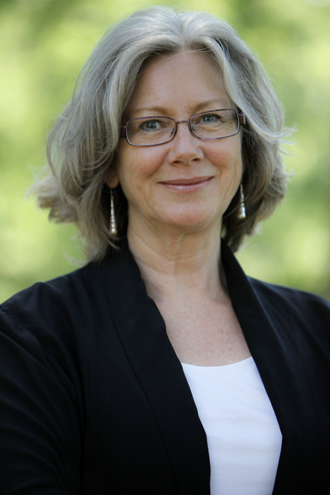Looking ahead: A Q&A with WSRC Director Karen Hansen
 Photo/Mike Lovett
Photo/Mike LovettKaren Hansen
In July 2017, Professor of Sociology Karen Hansen became just the second person to serve as the director of the Women's Studies Research Center at Brandeis since it was established in 2001.
Featuring the Scholars Program, the Student-Scholar Partnership Program, and the Arts Program, among other initiatives, the center brings together scholars, students, and faculty who study gender issues and women’s lives. Hansen took some time to talk with BrandeisNow about what she's done in her first year, what she hopes to do in the future, and what she wants people to know about the WSRC.
What has been your primary goal since becoming director of the WSRC?
One of goals in accepting this position was to bring the faculty into the center and bring the center more squarely into campus. There is kind of a structural separation that some centers and institutes on campus are able to cross, but it can be challenging. One of the first things I did was set up a "kitchen cabinet" to advise me on strategic matters related to the university and the Center. It includes representatives from the faculty, the scholars program, and the National Advisory Board. They've met every other month this academic year. The Kitchen Cabinet has focused on how we can build more bridges between the Center and the university and find common intellectual projects. I see the project of integrating the Center with the university as a major priority.
What will that integration ultimately look like?
I think the Student-Scholarship Partnership is a good example of something we would like to build upon. It's a longstanding program that partners undergraduates with scholars and faculty. Through the center, and funding from generous donors, we pay undergraduates for up to 50 hours of research in a semester in partnership with a research scholar. This partnership puts Brandeis students out there in the world, getting their hands dirty doing research, and being enterprising. Through the research, they are building a special mentoring relationship. I have opened the program to faculty as well as WSRC scholars. In the future we would like to expand the SSP to include graduate students as well.
As far as something new, the provost has just awarded us seed money to organize a common intellectual project. This next year, we will be running an interdisciplinary workshop to explore the phenomenon I call cascading – multiple, linked downward mobilities – and its intersectional consequences. As a process of falling from a particular status, cascading triggers additional declines shaped profoundly by gender and race-ethnicity. Downward mobility is not something experienced by just middle-class white men. Ideally, the workshop will bring people with common interests together to discuss the issues with national leaders in this research.
Has the recent heightened awareness around issues of sexual harassment and gender discrimination placed a greater emphasis on the need for the type of research coming out of the WSRC?
Without question. The erupting evidence of workplace sexual harassment reveals how extensive it is and the importance of studying gender and racial-ethnic inequality in all its forms, but particularly how men exercise power and the multiple negative consequences for women's employment and well-being. Not only do we have to study power, working conditions, and the repercussions of various kinds of harassment and violence directed against women, but we have to insist on changing destructive and exclusionary practices.
What is the one thing you want people on campus to know about the center?
The center is here to further the mission of the university and the faculty, to engage in discovery and research and to educate the next generation of scholars. The doors are open.
Categories: Humanities and Social Sciences, Research





